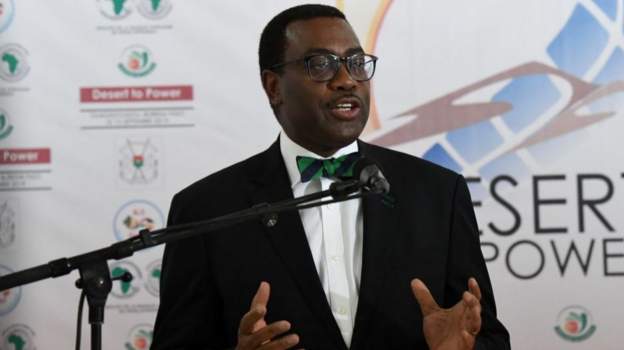The African Development Bank is preparing a $28 million post-COVID-19 recovery programme that will develop skills and encourage research and development so that the government can better fight pandemics in the future.
At the same time, this will aid the private sector to gather data to develop vaccines and drugs.
This was contained in a country brief on Ghana titled ‘Transforming Ghana,’ which reviews the country’s development over the past ten years and evaluates the African Development Bank’s contribution through its High 5 strategic priorities.
The project is expected to be approved by the Bank’s Board of Directors in the second quarter of 2022.
“An important element of building resilience is to build capacity. In July 2020, the Bank disbursed $67.6 million (UA 49 million) in emergency budget support to build the capacity of Ghana’s health system to test, trace, and care for the sick during the COVID-19 outbreak. The support also reduced infections, lowered deaths, and softened the economic damage caused by the pandemic.
A few years earlier, in December 2019, the African Development Bank approved $2.9 million to build the governments capacity to mobilise domestic resources and manage its debt.
Ghana has enjoyed two decades of steady growth, but the impact of the Covid-19 pandemic and the Ukraine-Russia crisis could dent economic prospects.
Ghana’s Gross Domestic Product (GDP) per capita grew 2.3% per year on average between 2012 and 2021, the report notes, citing the country’s stable political environment. Real GDP growth averaged 5.2% during the same time, causing the country to rank among Africa’s fastest-growing economies for several years.
Having achieved lower-middle income status in 2010, the population living below the poverty line fell from 24.2% in 2012 to 10.7% in 2021.
Moving forward, the Bank said it will continue to assist the country as it modernises agriculture and industrialises, while promoting the private sector to integrate regionally.
This is set out in Ghana’s Coordinated Programme of Economic and Social Development Policies 2017 to 2024.
The Bank also stressed that it will also continue to support governance reforms that mainstream such cross-cutting issues as a more business-enabling environment, resilience to climate change, gender equality, and sound macroeconomic management.
The principle it said is to build back from the pandemic better and smarter.
Latest Stories
-
Bawumia joins thousands in Kumasi for burial prayers for Ashanti Regional Imam
46 minutes -
Blue Gold Bogoso Prestea Limited challenges government actions in court
1 hour -
Patrick Atangana Fouda: ‘A hero of the fight against HIV leaves us’
2 hours -
Trinity Oil MD Gabriel Kumi elected Board Chairman of Chamber of Oil Marketing Companies
3 hours -
ORAL campaign key to NDC’s election victory – North America Dema Naa
3 hours -
US Supreme Court to hear TikTok challenge to potential ban
3 hours -
Amazon faces US strike threat ahead of Christmas
3 hours -
Jaguar Land Rover electric car whistleblower sacked
4 hours -
US makes third interest rate cut despite inflation risk
4 hours -
Fish processors call for intervention against illegal trawling activities
4 hours -
Ghana will take time to recover – Akorfa Edjeani
4 hours -
Boakye Agyarko urges reforms to revitalise NPP after election defeat
5 hours -
Finance Minister skips mini-budget presentation for third time
5 hours -
‘ORAL’ team to work gratis – Ablakwa
5 hours -
Affirmative Action Coalition condemns lack of gender quotas in Transition, anti-corruption teams
5 hours

